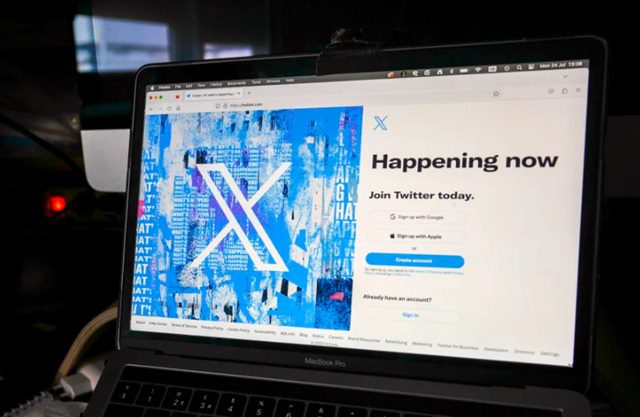BTN News: The European Union has accused Elon Musk’s social media platform, X, of using deceptive verification marks and failing to meet transparency and accountability requirements. This marks the first set of charges against a tech company under the EU’s new social media regulations.
The European Commission shared preliminary findings from its investigation into X, formerly known as Twitter, based on the Digital Services Act (DSA). The DSA, which applies to the 27-member bloc, mandates that platforms take greater responsibility for protecting European users and removing harmful or illegal content, under the threat of hefty fines.
Issues with Verification Marks
EU regulators have criticized X’s blue verification marks, calling them “dark patterns” that deviate from industry best practices and potentially mislead users. Before Musk’s acquisition of the platform in 2022, these verification marks were generally reserved for celebrities, politicians, and other influential accounts, signifying verified authenticity. However, Musk’s decision to allow any user to purchase verification for $8 per month has undermined this system.
The European Commission stated that the current system makes it difficult for users to make informed decisions about the authenticity of accounts and content. This shift, according to the Commission, negatively impacts users’ ability to discern credible information.
Blocking Research and Ad Database Deficiencies
In addition to concerns about verification marks, the EU has accused X of obstructing researchers’ access to data and maintaining a deficient advertising database. Under the DSA, platforms are required to provide a comprehensive database of all digital advertisements, including details about the advertisers and the target audience.
Musk’s Response and EU’s Stand
Elon Musk responded combatively to these accusations, alleging that the European Commission had offered X a secret deal to censor speech quietly, without imposing fines. He claimed other platforms had accepted this deal, while X had not, but did not provide further details.
Attempts to seek comments from X were met with an automated response stating, “Busy now, please check back later.” The company’s main spokesperson reportedly left the company in June.
EU’s Take on Verification and Transparency
Thierry Breton, the European Commissioner, expressed concerns over the changes to X’s verification system. “In the past, blue checks indicated reliable sources of information. Now, with X, our preliminary view is that they mislead users and violate the DSA,” Breton said in a statement.
The Commission’s investigation underscores the importance of maintaining transparency and accountability on social media platforms, especially concerning user protection and the dissemination of reliable information. As the probe continues, X faces potential fines and further scrutiny if it fails to comply with the DSA’s standards.
This development highlights the ongoing struggle between tech companies and regulatory bodies in ensuring safe and transparent digital environments for users. The outcome of this case could set a precedent for how other platforms operate under similar regulations in the future.


